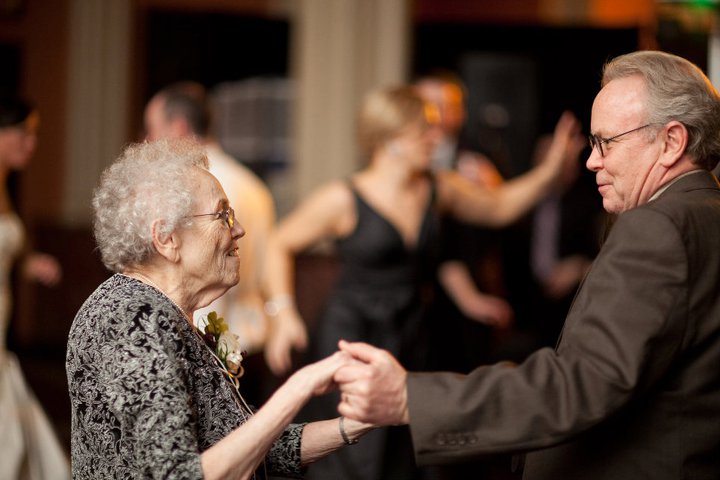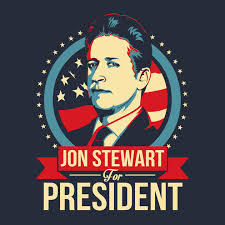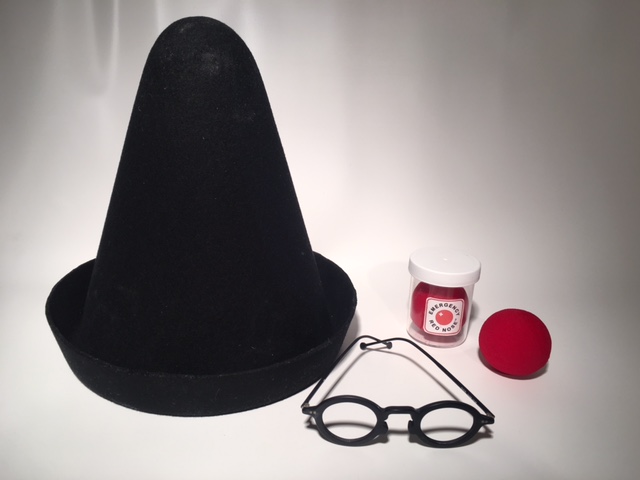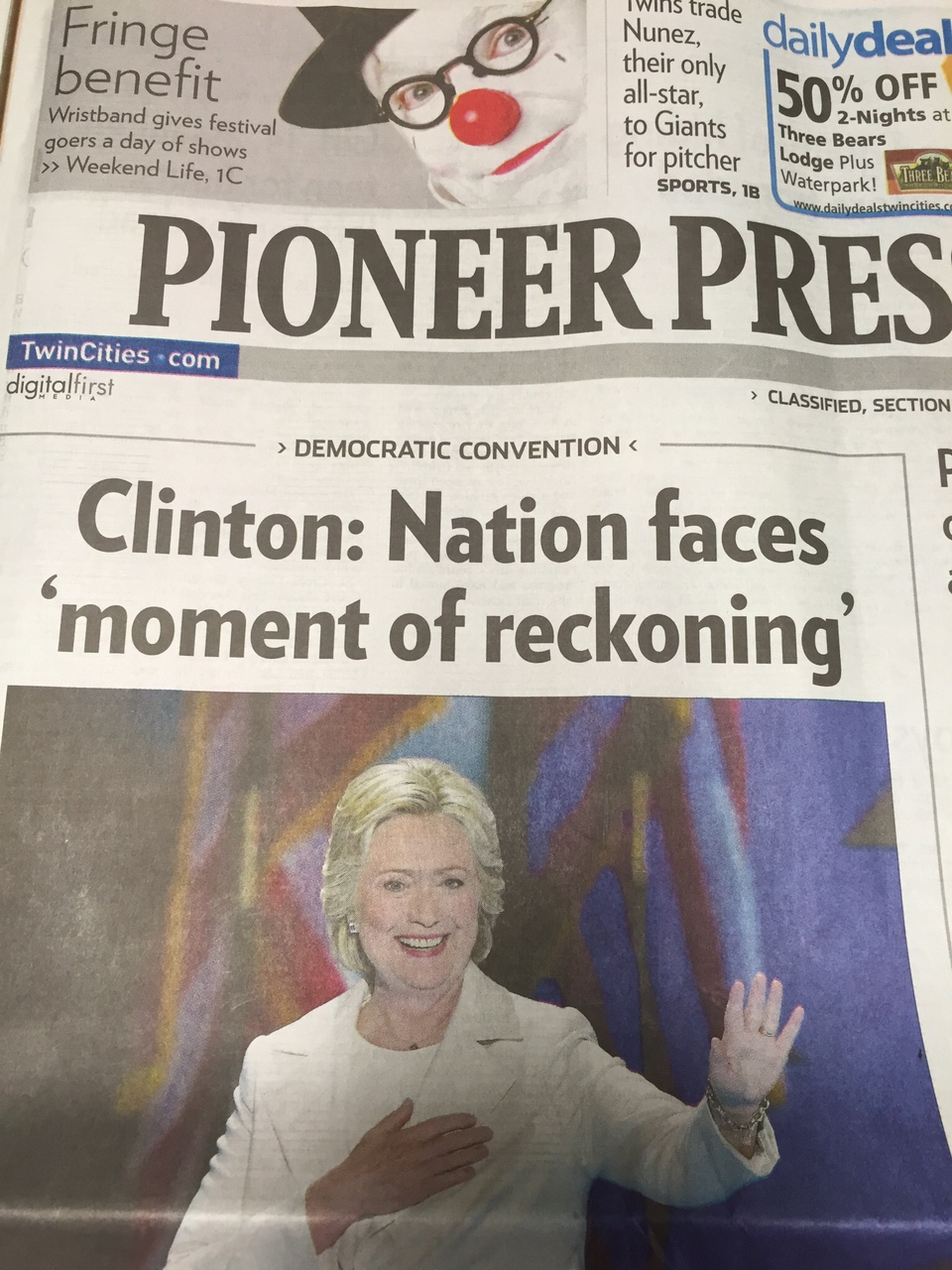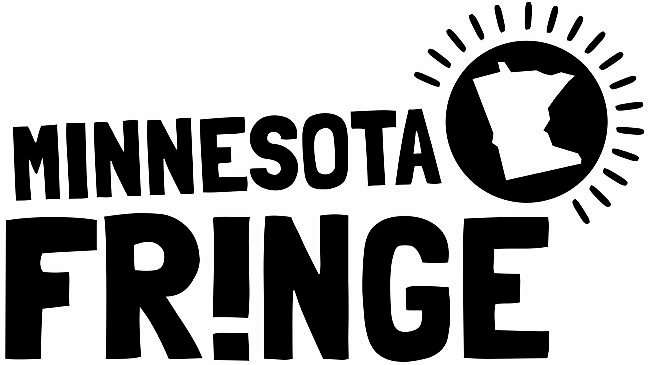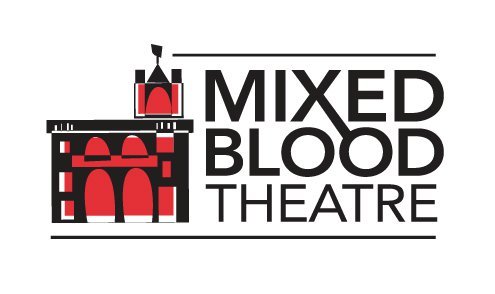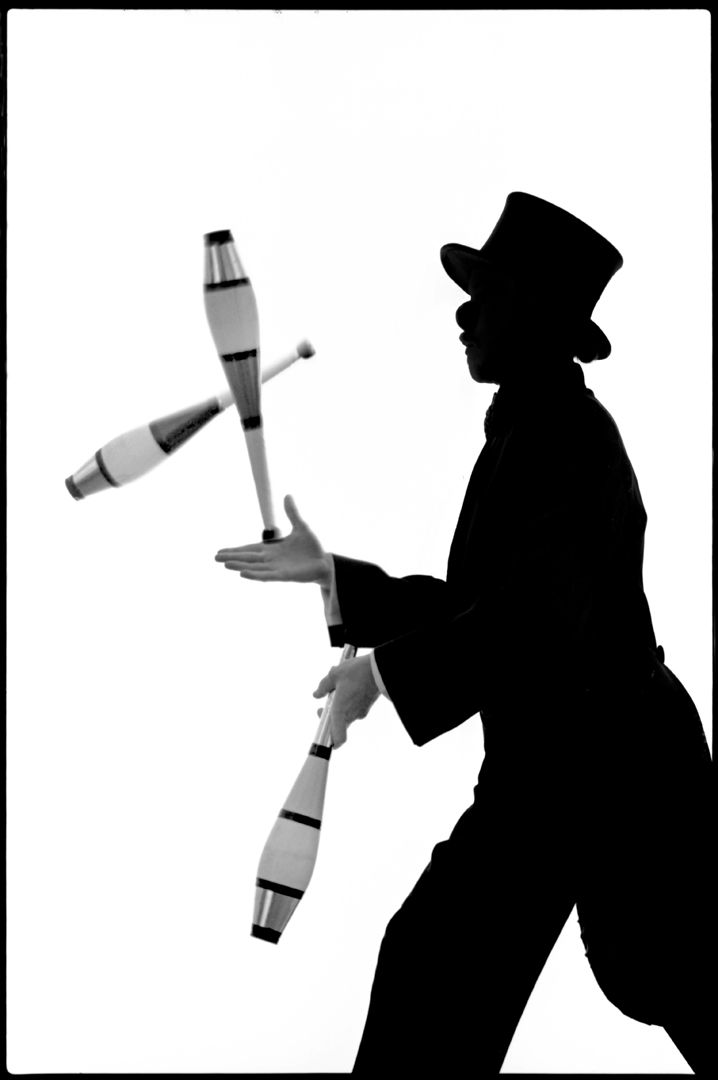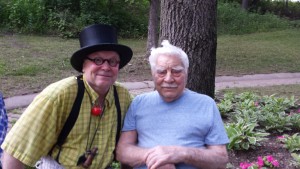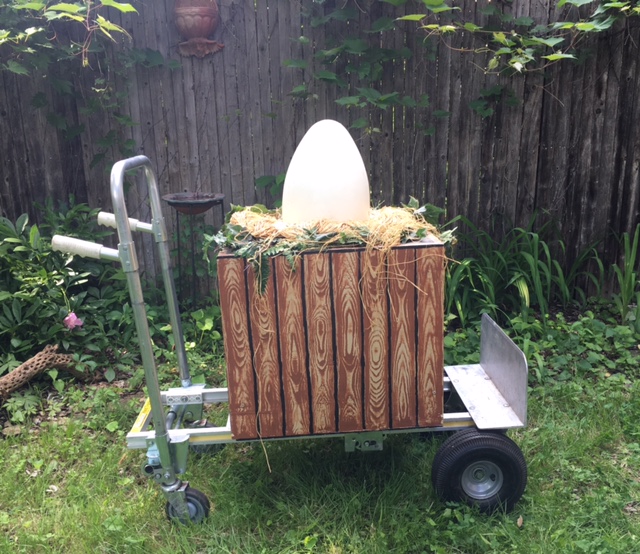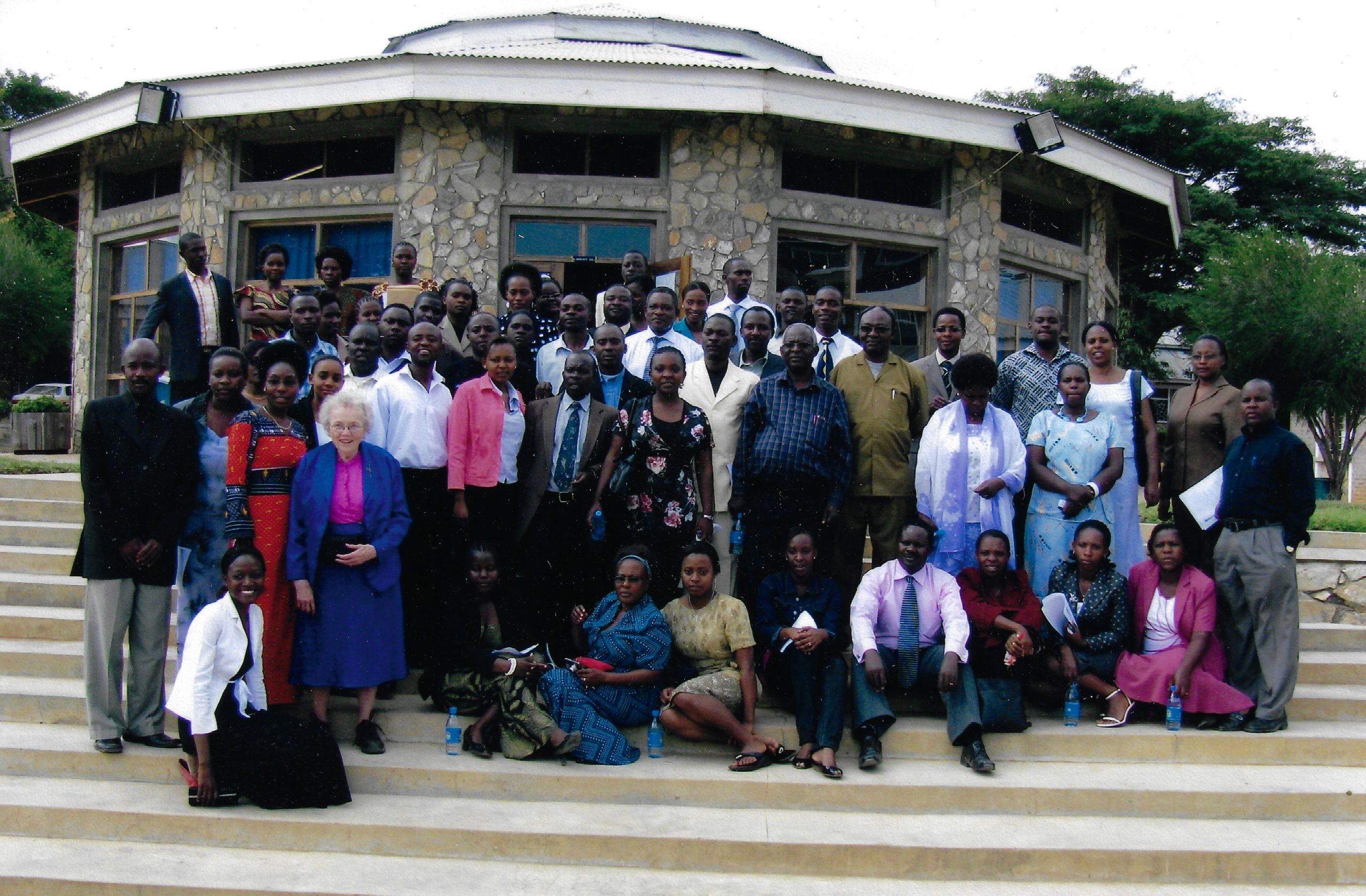
Mom’s greatest adventure began when she was called to serve for the fifth time in Africa. Her mission this time was to establish a bricks-and-mortar school for counseling at Iringa University in Tanzania. As a strong-willed-woman, Mom was always a powerful influence on her female students. In Africa she was a revolutionary force. She would form what is called a “Fish Bowl” where the class would circle around her and a student volunteer who was willing to share a personal problem they needed help solving. Often, a female student would come forward with a problem concerning her husband or another authority figure in her male dominated culture. Mom would council the woman to go to her husband, father, or tribal elder and lay claim to her own personal power, which was usually the real-world solution to resolve the woman’s problem. As a licensed Adlerian psychologist, Mom discovered she had the right toolkit to grapple with the deep universal truths of thorny inner-personal and family dynamics, regardless of the cultural influences of the host countries where she had served. This time her goal was to train the future teachers of the master’s degree program in psychology she was establishing at Iringa University.
Her time in Africa was a year of professional triumph, but also personal pain. Early in her stay she slipped in the shower in her isolated mountaintop home, crushing two vertebras in her lower back. While still recovering from her broken back, she caught malaria and was rushed to the hospital in the bouncing backseat of a student’s Toyota Corolla with bad springs. As she sped down the poorly maintained mountain road, Mom recalled a childhood memory growing-up on the farm, “I could churn butter on this road,” she complained while laughing between the bumps and back spasms.
Back home we were all worried sick. My hair was on fire and I wanted to get on the next plane and bring her home. I finally got ahold of my Uncle Arnold, who was visiting her in Tanzania. He calmed me down and assured me she was fine.
Arnold said, “What your mother is doing here is the most important work of her life. She is leaving a legacy. Let her complete it.”
After her students’ graduation, Mom finally returned home. When my brother Jerry picked her up at the airport, she was in such pain that he drove her directly to the closest hospital. This time, the culprit was her strangulated intestines. The doctor scheduled Mom for surgery in two days, restricted her to a liquid diet, and sent her home until the operation. That night, she received a call from the Red Cross. The I-35W bridge across the Mississippi river in Minneapolis had collapsed during rush hour. Mom had first volunteered back in the 1990s, when the Red Cross was looking for licensed psychologists to care for the mental health of their aid workers. At the time, she’d thought, “That’s a perfect job for a woman like me,” and signed up. Now in her eighties, recovering from jetlag, malaria, and a broken back, she said, “I’ll be happy to help.”
The next day, my five-foot-tall, hunchbacked mom looked every inch a Lutheran Mother Theresa as she arrived at the Minneapolis Red Cross headquarters. She put on a white vest with a giant red cross on the back and a name tag on the front. Painkillers took the edge off the discomfort of her strangulated intestines. A government official came in and asked for volunteers to greet President Bush, who was arriving via Air Force One within the hour.
Mom heard one man mutter, “Bush thinks he can come to this disaster to make-up for his botched response to Hurricane Katrina. I’m staying inside.”
A woman said, “I didn’t vote for him on election day, and I’m not going out there today.”
My mother responded, “I didn’t vote for him either, but I’ll go out and meet the president.” Within the hour, White House handlers came back to fetch her with a scattering of other volunteers to await the arrival of the presidential limo.
Mom stood in the doorway, staying dry from the rain, and thought back to her time in New Orleans after Hurricane Katrina. Other aid workers called her “the funky old lady,” because of her lavender outfits and purple bulbous toed shoes, revealing the clown inside her.
One female aid worker had refused to listen to Mom’s advice of taking short breaks to relieve her stress. The next day, the lady sought Mom out after a restless sleep filled with nightmares. My mother taught her to release stress by taking a moment to breathe after each call before taking the next.
The woman complained, “But someone could be in serious trouble.”
“It’s okay,” Mom said. “They’re not going away. You don’t have to answer the phone on the first ring.”
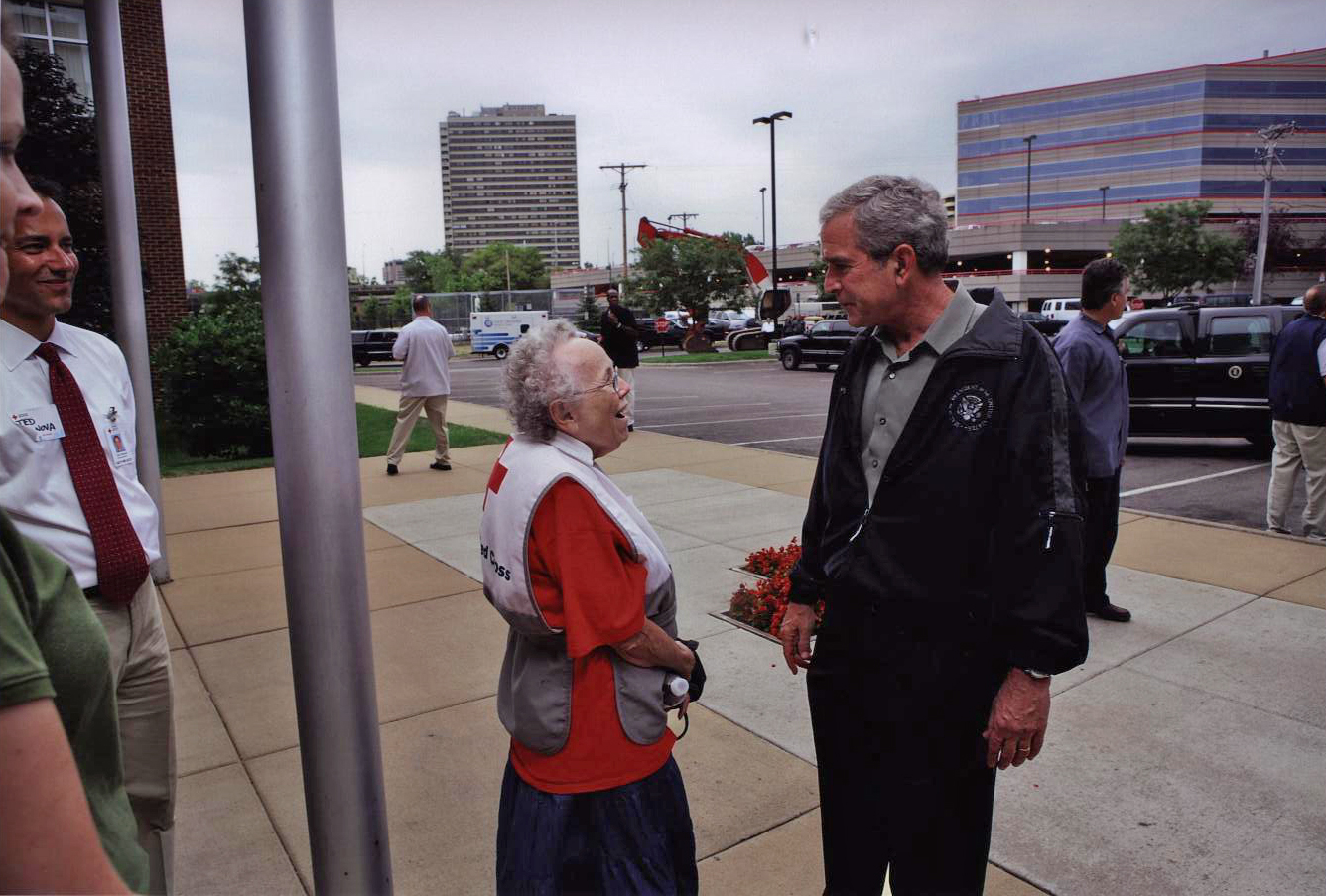
The rain stopped just before the presidential limo arrived with a flurry of Secret Service agents. President Bush climbed out of the backseat wearing a blue windbreaker with the presidential seal sewn on the left breast. His eyes were drawn to the little old lady in purple shoes, and read her nametag. In a thick Texas drawl, he said, “Elaine, how ya doin?”
Mom stepped past the Secret Service and offered the president her eighty-two-year-old hand. When Bush took it, she held on tight and didn’t let go. Mom looked up at him and said, “Mr. President, can I say a sentence to you?”
President Bush laughed at her spunk and said, “Why, Elaine, you can say a whole paragraph to me.”
My mother released his hand and said, “Mr. President, I read in the paper that you are starting peace negotiations for a two-state solution between the Israelis and the Palestinians.”
Startled, Bush said, “Well, as a matter of fact, Elaine, I’m meeting with top officials on this issue in Washington on Monday.”
“When the going gets tough, keep at it. Please don’t give up. This is important, Mr. President.”
Later that day, a government official noticed my mother’s nametag. “So, you’re Elaine.”
My mother said, “Yes, I am. Why do you ask?”
“Bush couldn’t stop talking about you,” he laughed. “When you brought up the peace negotiations in Israel, you blindsided him.”
The next day, I visited Mom at her house. Her surgery was in the morning, and I was nervous because I felt I needed to fulfill some intangible role. Awkwardly, I suggested praying together.
Her eyes brightened as she scooted closer to me on the couch and reached out her hands. I felt a current flow from her frail fingers to my heart. A radiant glow transformed her face as she waited for me to start.
I mumbled an improvised prayer, and she slipped into meditation with such practiced grace, it would’ve put a yogi master to shame.
After the prayer, she looked at me and said, “If I die tomorrow, I’ll be satisfied with the life I’ve lived.”
“What do you mean?”
She proudly straightened and said, “I may never do anything greater than what I accomplished this past year in Africa.” With a twinkle in her eyes she added, “And I think I peeked yesterday.”
I laughed. “You sure did tell Bush.”
She shrugged. “I kept a promise.”
“What promise?”
Mom told me on her last trip to Israel a group of Palestinian Christians asking her to tell the US President of their plight. They explained to be both a Palestinian and a Christian was to be the minority of the minority in Israel. No one was on their side. Mom promised, but she never thought she’d keep it.
I laughed proudly. “My mother, the peacemaker.”
